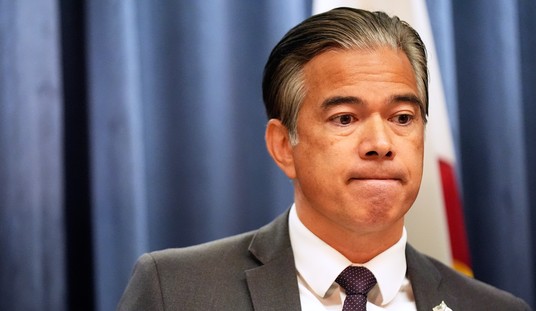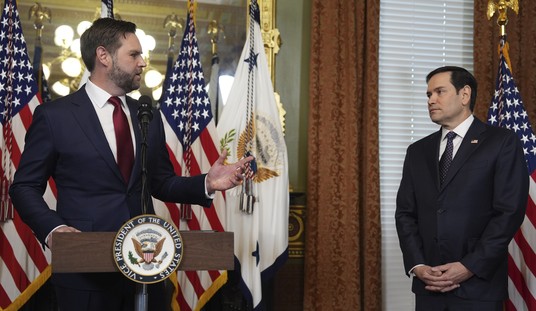On Thursday, Democratic Senator Mark Udall (D-CO) called for John Brennan’s resignation after admitting that the CIA penetrated Senate Intelligence Committee computers during an investigation of interrogation techniques — after first insisting that it didn’t happen at all. Another Democrat, Sen. Ron Wyden (D-OR) didn’t demand Brennan’s resignation, but suggested Friday that an independent counsel investigation may be needed to get to the truth. Wyden wants to know who ordered the Code Red:
“If a 19-year-old hacker had done this kind of search of Senate files,” Wyden stated twice, “that hacker would be in jail today.” And that wouldn’t have the same kind of constitutional repercussions as the CIA hacking the committee which oversees their work, which has some echoes of Watergate and the abuses of power in the Nixon administration. The threat to civilian oversight of armed forces and intelligence agencies is at once obvious and serious, and it’s arguable to say whether it’s worse if Brennan knew about the effort to spy on the Senate, or didn’t know about it. (Better for constitutional government if he didn’t, but worse for the competency of the Obama administration.)
So far, though, most of Udall and Wyden’s colleagues have been curiously slow to direct their outrage at Brennan, even though this is the third example of Obama administration intelligence leaders misleading Congress, willfully or not, on domestic surveillance issues (Keith Alexander and James Clapper being the other two). Even more curiously, Democrats seem a little quicker on the trigger in regard to Brennan than Republicans on yesterday’s talk shows:
No one new called for Brennan’s resignation, as Sen. Mark Udall (D-Colo.) and other lawmakers have in the past few days. President Obama said Friday that he has “full confidence” in Brennan. But the CIA director continues to be under fire from some and defended by others.
“I think he should view his position as in real jeopardy,” Sen. Sheldon Whitehouse (D-R.I.) said Sunday. “I think he’s in a very deep hole.” …
Chambliss noted that he voted against Brennan’s confirmation and has long been a critic of the director but said he believes Brennan did not know until recently that Senate staff computers were improperly searched.
“John has done a really good job” as director, Chambliss said, noting that Brennan immediately apologized to legislators once he knew the scope of the computer-search issue. “Once he got all the facts, he apologized.” …
“If I thought John Brennan knew about this, then certainly we’d be calling for his resignation,” Chambliss said. “He did not.”
But, the lawmaker said if the five staffers implicated in the breach worked for him, they would “be gone by now.”
Sen. Angus King (I-ME), who caucuses with Democrats, stopped short of demanding Brennan’s resignation, but made clear that was his inclination:
Tempers on the committee flared in recent months over reports that the CIA spied on computers used by intelligence committee staffers. A CIA inspector general’s report confirmed these reports this past week, prompting CIA Director John Brennan to apologize to committee members Thursday. However, some members aren’t satisfied, citing Brennan’s previous remarksthat batted down the spying accusations
“I don’t think an apology is enough,” Independent Sen. Angus King of Maine told CNN’s Candy Crowley on “State of the Union.” “I think we’ve really got to have some serious discussions about John Brennan, find out what he knew about this when he was making those statements, what he knew about it at the time. I’m not calling for his resignation, but I’m pretty skeptical right now.”
Ron Fournier gives ten arguments why heads should roll at Langley after this revelation, only a few of which deal with the hacking scandal:
6. The CIA has aggressively fought the release of even a summary of the committee’s conclusions. The agency has demanded and received authority to edit the report. Who wouldn’t want to edit his own indictment? This feels like institutional butt-covering.
7. The CIA hacked into the computers used by Senate investigators to conduct their watershed report. Agency spies were apparently attempting to retrieve and delete a damning internal CIA document (the so-called Panetta review). This could be criminal. It’s illegal for the CIA to spy inside the United States. The CIA is part of the executive branch of government. The Senate is part of the legislative branch, one of the few checks against the CIA’s extraordinary power.
8. CIA Director John Brennan had flatly denied that his agency was spying on Senate staffers. If Brennan knowingly misled the public, he’s a liar. If he denied the charges before checking them out, he’s careless with the truth. Pick your poison. Brennan ordered an internal review after denying the charges, then apologized when the spying was confirmed.
Not cleaning house, Fournier later argues, is tantamount to “implicitly condon[ing] institutionalized deception, lies, and cover-ups.” That’s certainly true — but was also true of Clapper and Alexander as well. Clapper is still Brennan’s boss, and Alexander got to retire on schedule. The condoning of “institutionalized deception, lies, and cover-ups” has been well under way for years in the Obama administration, and not just in intelligence, either. How many hard drives got mysteriously destroyed at the IRS? How many documents got withheld under claims of executive privilege for Operation Fast & Furious? How many different stories got told about Benghazi? How many veterans died while the VA was covering up their lack of service?
But in regard to intelligence, the question shouldn’t be whether Brennan can continue; it’s why we’d want him to do so, even apart from this latest incompetence. So far, we’ve missed the rise of ISIS, blew the Arab Spring, didn’t grasp the danger in eastern Libya until it cost four American lives, completely misread Russia and Vladimir Putin, and almost turned Egypt into a failed state too. Add in the use of USAID as a cut-rate covert-ops house, and US intel looks like a disaster, at least in terms of management. Not all of those are entirely the fault of intel; the CIA tried warning State repeatedly about Benghazi, for instance, and the intel communities don’t set policy. Still, we seem to be getting a lot less than we’d expect from our eyes and ears. Perhaps we should be cleaning house across the board.
Addendum: Glenn “Instapundit” Reynolds writes that even a resignation probably won’t improve matters in the Obama administration, where accountability gets treated like a four-letter word:
Call me old-fashioned, but I believe that people respond to incentives: If spying on, and lying to, Congress is dangerous, and the results of being caught unpleasant, then there will be less of it. If, on the other hand, the worst risk is a slap on the wrist and a seven-figure career in the private sector, then I suspect we’ll see more of this kind of bad behavior.
Congress can, of course, charge Brennan with contempt of Congress, or refer him for prosecution under the False Statements Act. But in both cases, the decision to prosecute would be made by Attorney General Eric Holder, who seems to see his role not as administering justice, but as running interference for the Obama administration and protecting its officials from consequences. (Holder himself has already been held in contempt of Congress for stonewalling an investigation into ATF gun-running to Mexican drug gangs). Likewise, Sen. Udall’s call for a criminal investigation of the CIA will go nowhere so long as Holder continues to play scandal-goalie.
Alas, as with the IRS’ stonewalling of investigations into its targeting of Obama’s political opponents, consequences for offenders seem hard to come by in the face of an administration that has no shame. Probably the best that Congress can do is to punish the entire CIA by using its budgetary power to make employees’ lives worse: Cutting back on bonuses, raises, conferences, and other perks. Where the IRS is involved, there’s some talk of abolishing most of it in favor of a national sales tax that would require much less bureaucracy and provide fewer opportunities for abuse, but that’s unlikely to go anywhere anytime soon.
The sad truth is that when you elect irresponsible people into positions of power, you get irresponsible government. President Obama oozes contempt for Congress, and for longstanding unwritten political accommodations among the branches, at every opportunity. It’s unsurprising that his underlings feel — and act — consistently with that view.
If the American electorate votes more responsibly next time, things will get better. Until then, alas, elections have consequences, and this is one of them.
This points out the need to have a truly independent Attorney General. And why, in all likelihood, they have been so rare.







Join the conversation as a VIP Member